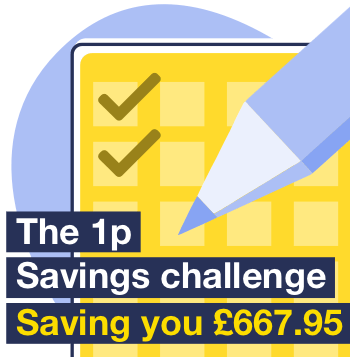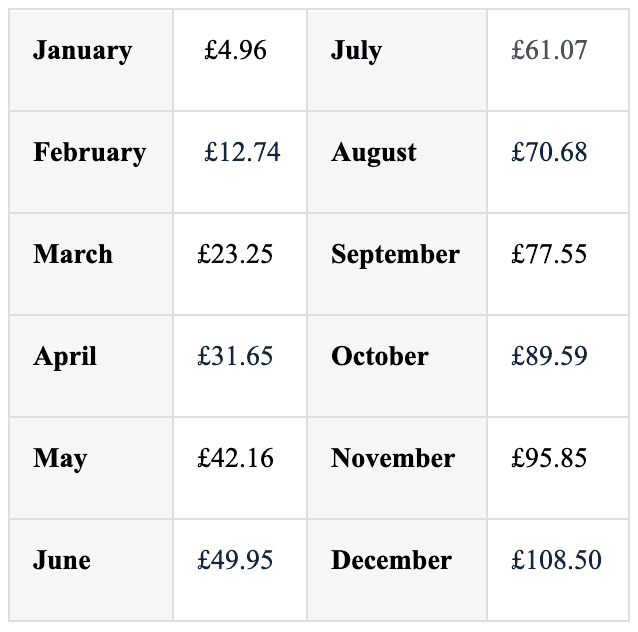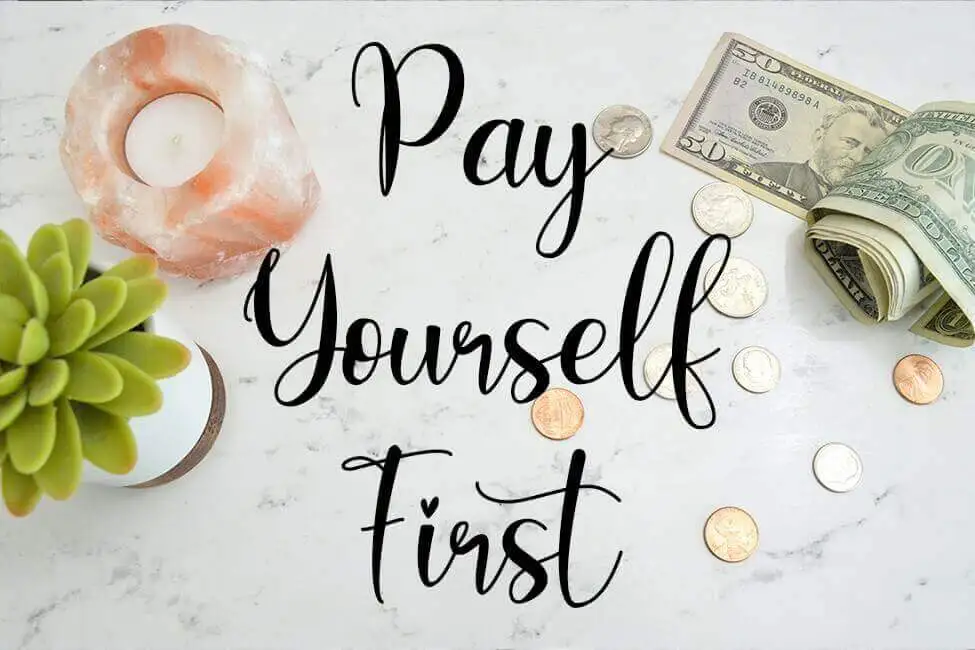
This post may contain affiliate links, please read our disclosure policy – Designed by Freepik.
Saving money can be tough, no matter what job you have or where you are in life.
According to a GOBankingRates survey of 1,063 U.S. adults from April 2024, around half of Americans have $500 or less saved, making them vulnerable to unforeseen expenses.
If you find yourself in a similar situation, don’t lose hope.
Whether you’re working towards buying a car, rebuilding your emergency fund, or tackling debt, you’re not alone in striving for financial stability.
As someone who’s equally committed to saving money, especially as a full-time blogger, I’ve discovered 10 effective budgeting strategies that have had a significant impact on my financial life.
These tips have helped me quickly boost my income and build a stronger financial base for the future.
I encourage you to try these strategies and see the positive changes in your financial situation.
Let’s work together to achieve a more secure and prosperous future.
This post is all about the best budgeting tips for beginners you should know about.
The Best Budgeting Tips For Beginners
1. Take the 1p savings challenge

Image by moneysavingexpert.com
- Day one: £0.01
- Day two: £0.02
- Day three: £0.03
Start with 1p on the first day of January, 2p on the second day, increasing the amount you save by 1p each day. By the last day of December, you will have saved £3.66.
Once you reach day 100, increase the daily amount to £1, and then at day 200, increase it to £2. The earlier you start, the better prepared you’ll be for the more expensive months around Christmas.
Over 365 days, the 1p savings challenge can help you save an impressive £667.95. That’s a significant amount for simply setting aside a small amount each day.

Image by moneysavingexpert.com
It is simple to calculate and easy to stick to. And it’s incredibly flexible, easily tailored to fit any currency you’re using, whether it’s US Dollars, euros, pounds, or something else.
But remember that if you start soon, it means the most intense months will be around Christmas.
2. Rely on cash for high-expense categories
Adopting a cash-only approach for high-spending categories can be a game-changer. Studies show people tend to spend less when using cash compared to electronic payments. When you see the physical money leaving your hand, it’s a real wake-up call to your spending habits.
In a 2016 Federal Reserve study, the average value of a cash transaction was $22, compared to $112 when paying electronically, such as with a credit card.
Remember, using credit cards can make it easy to overspend since you don’t physically see the money leaving your possession. It’s important to stay conscious of your spending and choose a method that works best for you.
By embracing the 1p savings challenge and using cash for high-spending categories, you’ll not only build a healthy saving habit but also gain greater awareness of your spending patterns.
These small changes can make a big difference in your financial well-being over time.
“Something about having to physically part with the cash makes it harder to spend.” – Lins says
Avoid Using Your Debit Card for These Categories
Remember these valuable tips for achieving financial success:
When managing your expenses, consider avoiding the use of your debit card for certain categories, especially automatic payments.
One effective approach is to leave your debit card at home for a few weeks to help break any unwanted financial habits.
3. Plan your budget to zero before the new month starts
Start your month with a zero-based budget by giving each dollar a specific purpose.
This practice can empower you to take control of your finances, eliminate debt, and reach your savings objectives.
How to start a zero-based budget
Prior to adopting a zero-based budget, it’s essential to take some key steps:
- Calculate your total monthly income, including paychecks and benefits.
- Monitor your expenses over a few months to identify areas where you can cut back and reallocate funds.
- Classify your expenses to prioritize needs, wants, emergency fund, savings objectives, and debt repayments.
Adhering to the 50/30/20 rule, allocate 50% of your income towards needs, 30% towards wants, and 20% towards debt repayment and savings. For more details, you can refer to NerdWallet’s budgeting guide.
4. Pay off your debt
Managing and paying off your debt should be a top priority, as debt can have detrimental effects on your overall well-being – mentally, physically, and emotionally.
When addressing your debt:
- Compile all your debts, including their interest rates and balances.
- Consider different repayment strategies, such as the avalanche method (prioritizing high-interest debts first) or the snowball method (tackling the smallest debts first for early wins).
Find a repayment strategy that resonates with you to maintain motivation and focus on your goal.
It’s important to remember that you are not alone on this journey. While integrating debt repayment into your budget might require short-term sacrifices, the long-term rewards are immeasurable.
It’s crucial to recognize that taking charge of your finances is a substantial stride towards financial freedom. Keep making progress, stay motivated, and remember – you have the strength to achieve your goals!
Picture the relief of waking up knowing you’re entirely debt-free. It’s more than just a financial achievement; it’s a triumph for your well-being, giving you the freedom to focus on a future without financial stress.
Once you’re no longer tied to past debts, you can genuinely budget for the present—and for the future!
5. Pay Yourself First

Photo on LinkedIn
Prioritize your financial well-being by paying yourself first. Instead of waiting until the end of the month to save, allocate a portion of your income for savings, retirement, and debt as soon as you get paid.
This budgeting strategy ensures that you prioritize your own financial goals before addressing variable expenses, helping you build a secure financial future.
This approach works best for those who find it challenging to save money at the end of the month. It is also ideal for individuals who prefer to save before spending.
6. Nobody’s Perfect — Give Yourself Grace
Give yourself room for occasional mistakes and detours from your budgeting plan. Embracing a flexible approach to budgeting allows you to learn from missteps and continue progressing towards your financial goals.
Remember, it’s a lifelong journey, and celebrating both small and significant financial achievements helps keep you motivated in the long run.
7. Get Specific—Like, Really Specific
Break down your annual budget into monthly plans to better manage your finances.
By creating a monthly budget that considers both consistent and occasional expenses, such as rent, car payments, and seasonal celebrations, you gain a more comprehensive overview of your financial responsibilities throughout the year.
Monthly budgeting provides increased accuracy in tracking your income and expenses, accommodating fluctuations throughout the year.
This method offers flexibility to adjust your budget for unexpected expenses or income changes, making your financial goals more manageable and achievable.
Pros:
- Increased Accuracy: Monthly budgeting allows for more precise tracking of income and expenses, as it accounts for the fluctuations that occur throughout the year.
- Flexibility: Life is full of surprises, and a monthly budget can be adjusted to accommodate unexpected expenses or changes in income.
- Goal-Oriented: By breaking down your annual financial goals into monthly targets, you make them more manageable and achievable.
- Prevents Overspending: With a specific plan for each month, you’re less likely to overspend in certain categories. Monthly budgeting helps ensure that there’s a place for every dollar.
Cons:
- Time-Consuming: Setting up and maintaining a detailed budget for each month can be time-intensive. It requires regular check-ins and adjustments to ensure it remains accurate and effective.
- Can Be Overwhelming: For those new to budgeting, the level of detail required for monthly budgeting might feel daunting. It can be challenging to predict all potential expenses and income changes, especially when starting out.
- Potential for Discouragement: If unexpected expenses derail your budget in a particular month, it can be discouraging. This can lead some people to abandon the budgeting process altogether if they feel it’s not yielding immediate results.
8. Ditch Credit Cards: Opt for Debit and Cash Instead
Consider ditching credit cards in favor of using debit cards and cash. This approach helps you have a more tangible perception of your spending and can curb impulse purchases.
Seeing the physical money leave your possession can provide a clearer understanding of your financial situation, ultimately empowering you to take control of your finances.
9. Practice the Power of Pause

Photo by Brett Jordan on Unsplash
Practice the power of pause when faced with the urge to make impulsive purchases. Before buying something, take a step back and question why you really desire the item.
Understanding the emotions driving your spending habits can lead to more mindful decision-making and a deeper awareness of your financial triggers.
How to Practice the Power of Pause:
- Take a break from subscriptions and remove yourself from email lists.
- Cut back on dining out and avoid buying alcoholic drinks.
- Consider skipping a summer vacation in favor of a staycation.
- Wait for 24 hours before purchasing items under $25.
- Delay a purchase for one week if it’s between $50-$100.
- Give yourself 30 days to think about buying anything in the $100-$500 range.
- Wait six months before making a purchase over $500.
The next time you are looking for ways to save money or to budget, turn to the power of pause.
10. Negotiate Your Bills and Subscriptions
When it comes to cutting costs and staying within your budget, consider the power of negotiation. Many people overlook the fact that they can negotiate their bills, potentially saving extra money each month.
Take the initiative to start negotiating with your service providers as this can significantly reduce your monthly and annual expenses, especially in the face of rising prices and interest rates.
Negotiating with Service Providers
One effective way to negotiate your bills and subscriptions is to call and ask for a better deal. Many service providers are open to finding more affordable options for you.
You can even leverage competitor prices as a bargaining tool. If you receive a lower offer from another company, don’t hesitate to mention it to your current provider and see if they can match or surpass it.
Negotiating Rent
For many, rent is one of the largest monthly expenses. Don’t be afraid to negotiate with your landlord or property manager to potentially lower your rent payments. While this might seem challenging, it can be a great way to save money and stay on track with your budget.
How to Improve Your Chances of Negotiating Your Bills
- Be Persistent: Asking for a bill reduction can involve waiting and a lengthy approval process. However, don’t give up; you often get your request granted. Even if you don’t succeed initially, you can try again.
- Be Polite: A polite approach can encourage service agents to assist you promptly.
- Provide Supporting Information: Updated information, such as a strong driving record, can support your request for lower rates, like car insurance.
- Research Alternatives: Look into different service options to negotiate better deals or switch to more affordable providers.
If negotiating your bills doesn’t work out, try again after a few months or explore switching to a more cost-effective alternative.
Before breaking a service contract and changing providers, ensure there are no penalties or fees involved.
Time to Use These Budgeting Tips!
And remember: When you realize that budgeting isn’t about limiting your freedom but about providing it, you’ll be on the path to enjoying life and your bank account. That’s what we call winning with money.
I hope you found these tips helpful as you work towards better financial management!



Leave a Reply